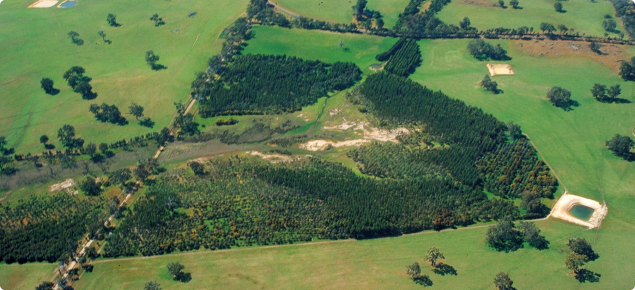Summary
Reforesting cleared farming land with native species can potentially earn carbon credits for the carbon stored in the trees, soil and litter. Trees planted in blocks or belts can integrate with agricultural acitivies.
There are several eligible emissions reduction activities under the Emission Reduction Fund.
Benefits from Permanent Environmental Plantings
Carbon benefits through the trading of Australian Carbon Credit Units (ACCUs) with other Australian businesses with compliance obligations or that plan to offset their carbon emissions voluntarily.
Co-benefits of permanent environmental plantings include:
- reduced recharge on areas at risk from rising watertables
- improved shelter for livestock, especially lambing ewes, off-shears sheep, and lambs
- reduced wind and water erosion
- reduced chemical spray drift
- enhanced biodiversity benefits through providing habitat.
Opportunity for revegetating marginal or unproductive lands using native species.
Risks in Permanent Environmental Plantings for ACCUs
- If trees are burnt or die from drought, landholders may have to repay the ACCUs they hold or re-establish the planting. There is a guidance from the ERF on managing fire risk.
Further Information
For queries, please email CarbonFarming@dpird.wa.gov.au.
Click here to subscribe to DPIRD's Carbon Farming News.

